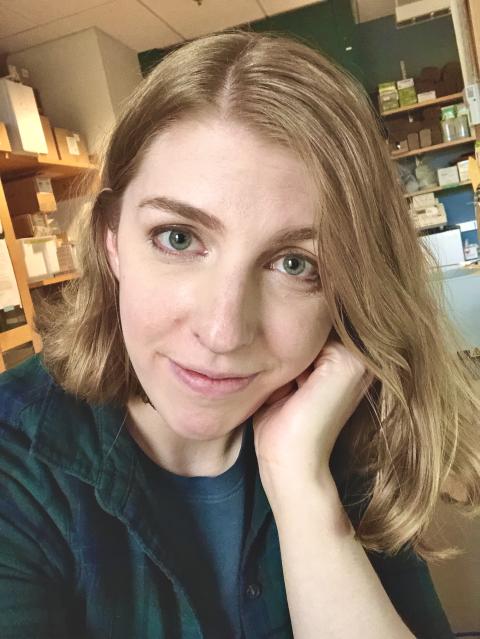
Jennifer (Jenny) Calawa is a doctoral student in microbiology. She recently won a Graduate Student Teaching Award — one of only two PhD candidates to win this university-wide competition.
The award recognizes graduate students who have demonstrated excellence in teaching, including enthusiasm for teaching and learning, mastery of subject area, effectiveness in communicating subject to students, use of creative and innovative teaching techniques and overall effectiveness.
Winners and nominees are honored at a public awards ceremony held during Graduate Student Appreciation Week and receive a commemorative certificate and a monetary prize of $500.
Jenny Calawa: I do research in two different areas of microbiology. I study how beneficial bacteria that can associate with a host organism - like how we have helpful bacteria in our gut! - naturally evolve in their environments, which changes how they can interact with their host species. I also study how to improve undergraduate nursing education so nursing students understand how essential microbiology is to patient care and can improve healthcare outcomes at their future jobs!
Jenny: Most people I know think bacteria are gross or only make you sick, but microbes also keep us healthy from invading pathogens, help us digest our food for better nutrition, let us develop new biotechnologies to clean up the environment and feed our growing population, and keep the cycles of nature going strong!
Jenny: The evolution of microbial symbionts (bacteria that associate with animal or plant hosts) is still an emerging field of microbiology, and we're not even close to understanding the myriad of complex interactions between bacteria, humans, and their shared environment. This kind of research has big implications for ecology and the environment, evolutionary biology, and public health. And I believe one of the keys to improving healthcare outcomes in the U.S. is improved undergraduate nursing education, especially in microbiology. My research in this field has tremendous socioeconomic and public health implications as well.
Jenny: One interesting and important fact I've learned from my education research is that although students can often feel nervous about learning microbiology - often because they believe it's inherently difficult, overly time-consuming, or just plain boring - taking a class in microbiology significantly changes those feelings to be more positive, reducing their fear of a so-called "hard science" and helping students see how microbiology knowledge can be helpful for everyone. Good education really is key to changing the world!
Jenny: I love my students. Educating future nurses, scientists, teachers, and more so they can do their part to change the world motivates me every day.
Jenny: I'm definitely proudest of all the times I've been able to help my students improve their skills and meet their goals for learning, especially when we unexpectedly went fully remote last year. Being there for my students and helping whenever I can is very important to me.
Jenny: Along with my research here, I also work for the UNH Center for Excellence and Innovation in Teaching and Learning as a research associate, studying the cognitive science of learning. Once I graduate, I want to teach at the university level and continue working in both the biology and cognitive science of learning fields.
Jenny: I've been told by multiple people, over many years, that I make the best chocolate chip cookies they've ever had. (The secret ingredient, unfortunately, is not microbes.)
Learn More